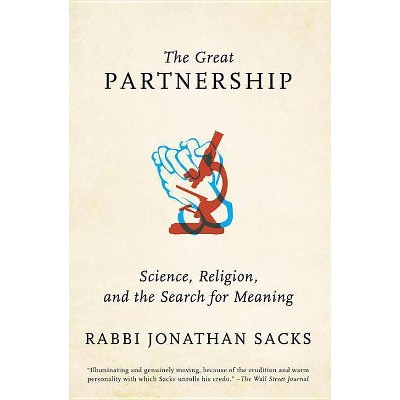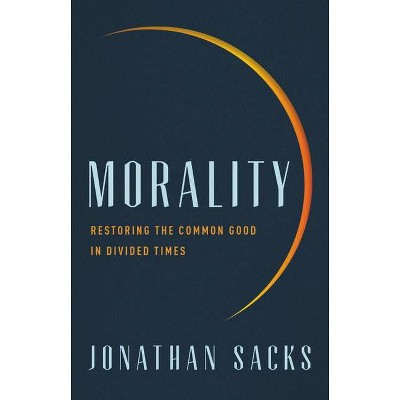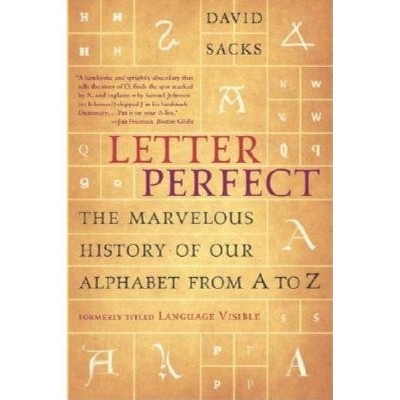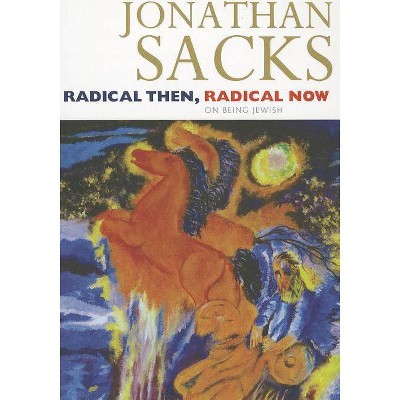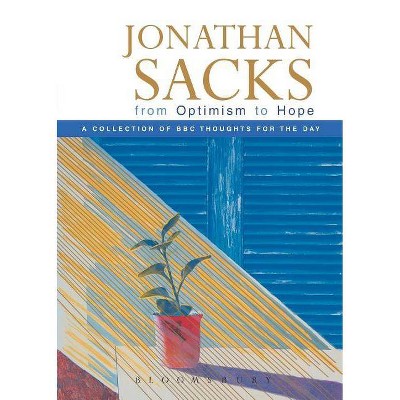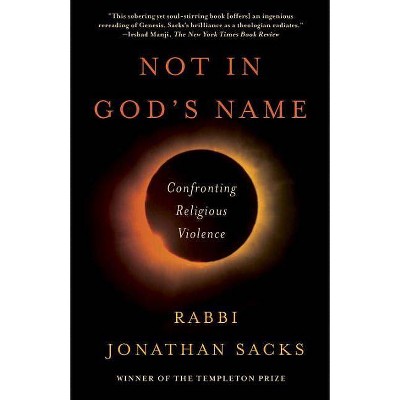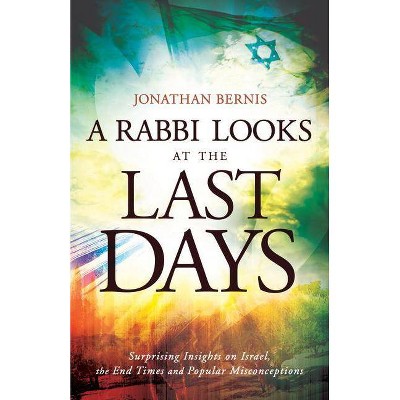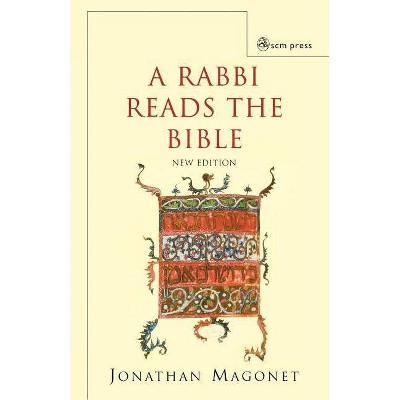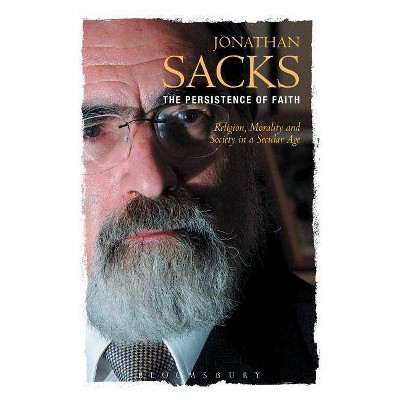A Letter in the Scroll - by Rabbi Jonathan Sacks (Paperback)
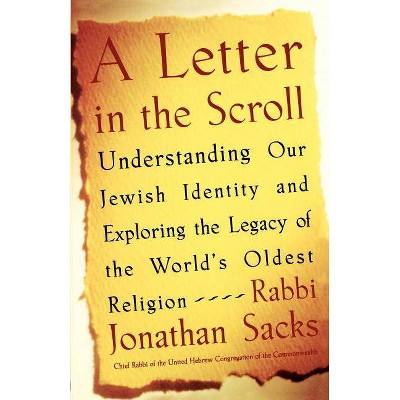
Similar Products
Products of same category from the store
AllProduct info
<p/><br></br><p><b> Book Synopsis </b></p></br></br>For too long, Jews have defined themselves in light of the bad things that have happened to them. And it is true that, many times in the course of history, they have been nearly decimated: when the First and Second Temples were destroyed, when the Jews were expelled from Spain, when Hitler proposed his Final Solution. Astoundingly, the Jewish people have survived catastrophe after catastrophe and remained a thriving and vibrant community. The question Rabbi Jonathan Sacks asks is, quite simply: How? How, in the face of such adversity, has Judaism remained and flourished, making a mark on human history out of all proportion to its numbers? <p/>Written originally as a wedding gift to his son and daughter-in-law, <i>A Letter in the Scroll</i> is Rabbi Sacks's personal answer to that question, a testimony to the enduring strength of his religion. Tracing the revolutionary series of philosophical and theological ideas that Judaism created -- from covenant to sabbath to formal education -- and showing us how they remain compellingly relevant in our time, Sacks portrays Jewish identity as an honor as well as a duty. <p/>The Ba'al Shem Tov, an eighteenth-century rabbi and founder of the Hasidic movement, famously noted that the Jewish people are like a living Torah scroll, and every individual Jew is a letter within it. If a single letter is damaged or missing or incorrectly drawn, a Torah scroll is considered invalid. So too, in Judaism, each individual is considered a crucial part of the people, without whom the entire religion would suffer. Rabbi Sacks uses this metaphor to make a passionate argument in favor of affiliation and practice in our secular times, and invites us to engage in our dynamic and inclusive tradition. Never has a book more eloquently expressed the joys of being a Jew. <p/>This is the story of one man's hope for the future -- a future in which the next generation, his children and ours, will happily embrace the beauty of the world's oldest religion.<p/><br></br><p><b> Review Quotes </b></p></br></br><br>Rabbi Joseph Telushkin, author of "The Book of Jewish Values: A Day-by-Day Guide to Ethical Living" [In] a work both powerfully intellectual and passionately personal, Rabbi Jonathan Sacks makes a profound case for Judaisms enduring significance -- both for the world and for every reader.<br><br>Dr. Norman Lamm, President Yeshiva University Of the many books that introduce the reader to Judaism, "A Letter in the Scroll" is by far the best. Without resorting to technical religious and philosophical jargon, Rabbi Sacks takes us on a fascinating cultural and religious journey that is as engaging as it is informative. All in all, this is a splendid volume by an eminent author -- a felicitous combination that will attract the already informed as well as the merely curious. Buy it and give it as a gift -- but first, make sure to read it from cover to cover.<br><br>Gertrude Himmelfarb, author of "One Nation, Two Cultures" It is not often that a serious theologian and philosopher addresses the fundamental, personal questions that confront every thoughtful Jew: "Who am I?" and "Why should I remain a Jew?" Rabbi Sacks has done this in terms that are accessible to the layman and at the same time draw upon a rich store of knowledge and a profound sense of human nature. Intended as a wedding present to his son and daughter-in-law, this book speaks to the old as well as the young, to those of unquestioned faith as well as those torn by the conflicting impulses of modernity.<br><br>Michael Novak, George Frederick Jewett Chair in Religion and Public Policy, American Enterprise Institute Of all the questions of life, the two most penetrating are: "Who am I? Who are we?" Rabbi Sacks answers beautifully. On matters of faith he is one of my favorite writers.<br><br>Paul Johnson, author of "A History of the Jews and A History of the American People" This short and scholarly book is an excellent survey of the moral strengths of Judaism and the ways in which its precepts can improve human conduct and add to our wisdom.<br><br>Wendy Shalit, author of "A Return to Modesty: Discovering the Lost Virtue" Just as slavery in Egypt helped us appreciate freedom, perhaps our current cultural morass will lead us to a Jewish reawakening. Certainly a new generation of young Jews, disappointed with the legacy of the 1960s, is looking for ways to recover its Jewish heritage. Rabbi Sacks helps us in our search, rescuing the ideas of freedom, tolerance, and diversity from their modern perversions and exhuming their original Jewish meaning. "A Letter in the Scroll" does not merely tell us why we should keep kosher and observe Shabbat -- it reminds us of who we are and poignantly shows us who we can be.<br><br>Dr. Norman Lamm, President<P>Yeshiva University<P>Of the many books that introduce the reader to Judaism, "A Letter in the Scroll" is by far the best. Without resorting to technical religious and philosophical jargon, Rabbi Sacks takes us on a fascinating cultural and religious journey that is as engaging as it is informative. All in all, this is a splendid volume by an eminent author -- a felicitous combination that will attract the already informed as well as the merely curious. Buy it and give it as a gift -- but first, make sure to read it from cover to cover.<br><p/><br></br><p><b> About the Author </b></p></br></br><b>Rabbi Jonathan Sacks</b> has been the Chief Rabbi of Britain and the Commonwealth since 1991. Educated at Cambridge and Oxford, he has held professorial chairs and congregational pulpits in England, Israel, and the United States. The author of eleven previous books, including <i>Arguments for the Sake of Heaven</i> and <i>The Politics of Hope, </i> he lives in London, England
Price History
Price Archive shows prices from various stores, lets you see history and find the cheapest. There is no actual sale on the website. For all support, inquiry and suggestion messagescommunication@pricearchive.us
